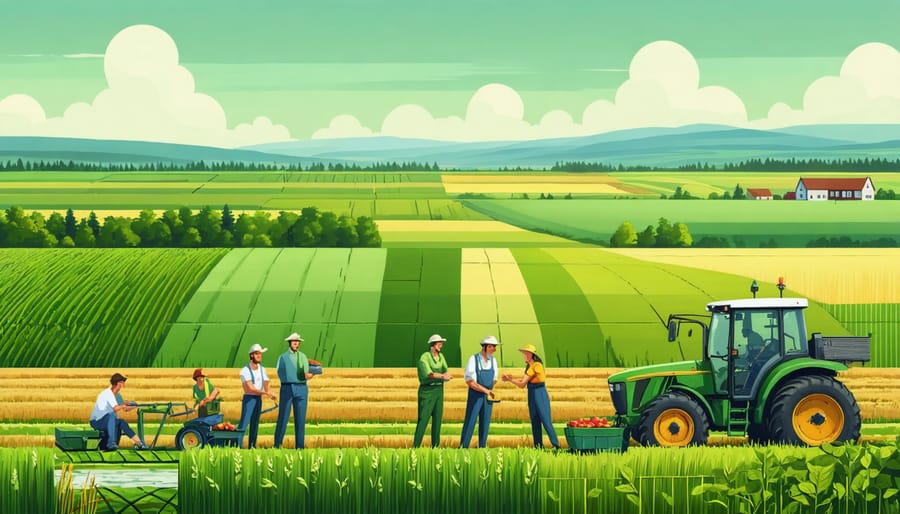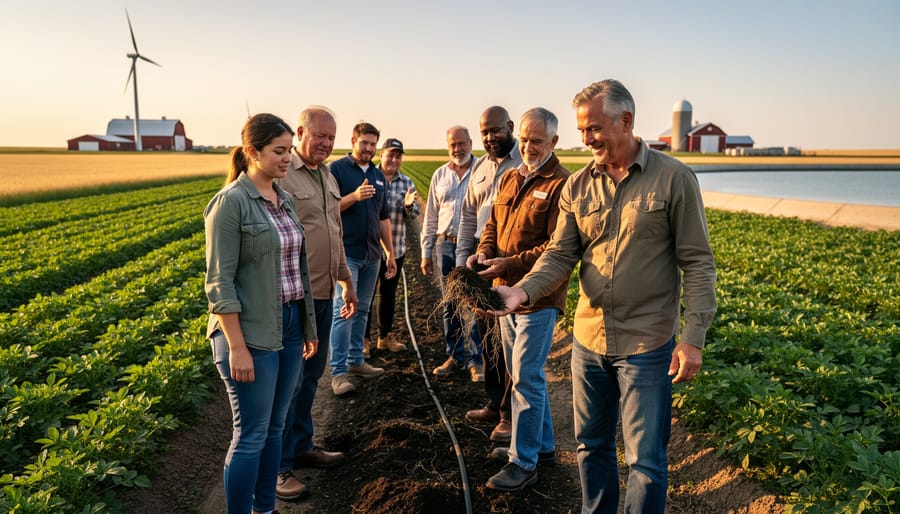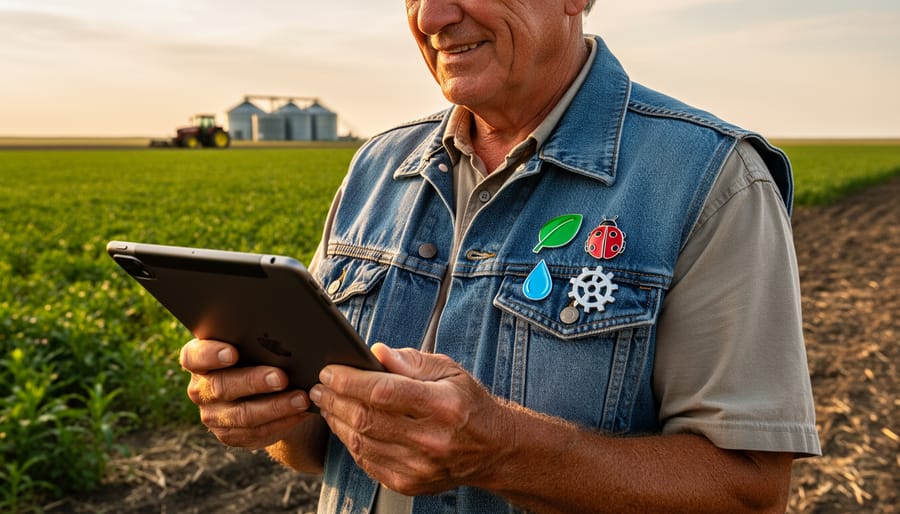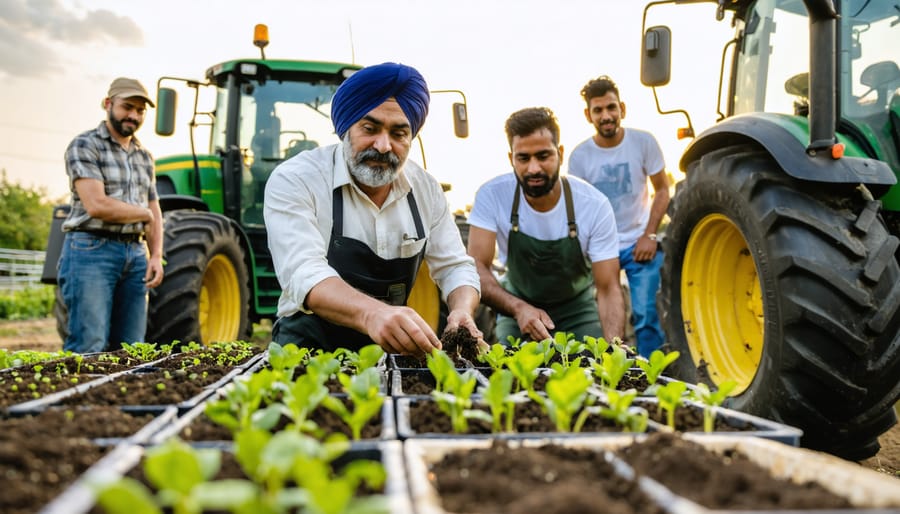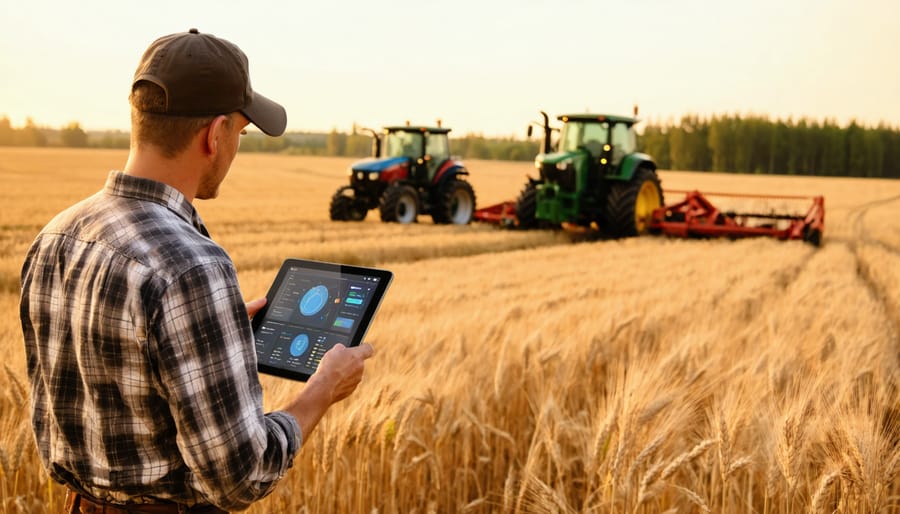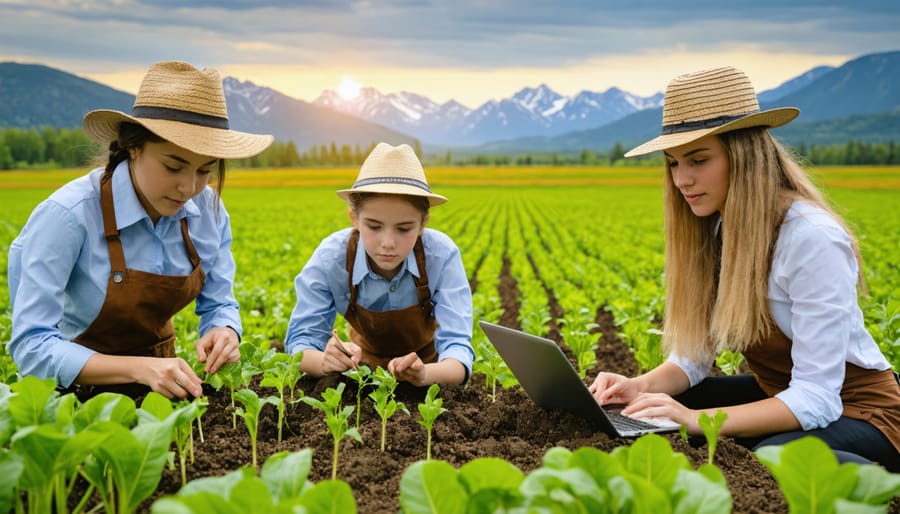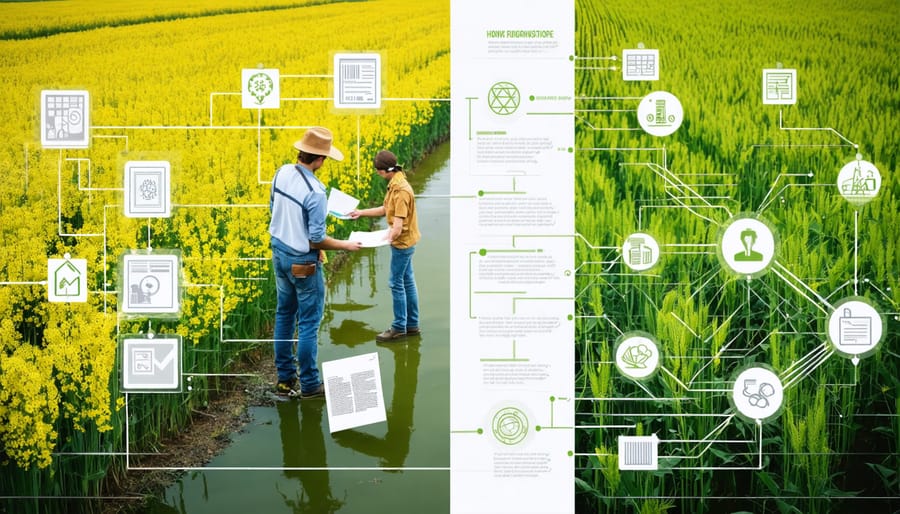In Alberta’s farming communities, grassroots action drives lasting change. Community climate initiatives have transformed local agricultural practices, reducing carbon footprints while strengthening neighborhood bonds. From Lethbridge to Peace River, farmers are leading workshops, sharing sustainable techniques, and building resilient food systems that weather environmental challenges together.
These initiatives succeed because they tap into existing social networks, respect local knowledge, and address specific regional needs. When neighbors teach neighbors, innovation spreads organically. Whether it’s implementing zero-till practices, managing water resources, or developing local food markets, community-led solutions consistently outperform top-down approaches.
The power of collective action is clear: participating farms report 30% higher adoption rates of climate-smart practices compared to individual efforts. By combining traditional farming wisdom with current climate science, these grassroots movements create practical, long-lasting solutions that work for real Alberta farms.
Join the movement that’s already making a difference. Your community’s next climate solution starts with you, your neighbors, and the shared commitment to preserving our agricultural heritage while building a sustainable future.
How Alberta’s Farmer-Led Climate Workshops Are Different
By Farmers, For Farmers
Local farmers are the driving force behind our workshop content, bringing decades of hands-on experience to the table. In Alberta, we’ve seen remarkable success with this peer-to-peer approach, where experienced producers share their climate-smart farming practices with fellow agriculturists. Third-generation farmer Dave Peterson from Lacombe County explains, “When you learn from someone who’s faced the same challenges on their land, it just clicks differently.”
Our workshop facilitators are active farmers who understand the unique challenges of Alberta’s diverse growing regions. They blend traditional farming wisdom with current research, creating practical sessions that resonate with local conditions. From soil health management in the Peace Country to water conservation techniques in Southern Alberta, each workshop is tailored to regional needs.
The curriculum evolves through continuous feedback from participating farmers. Regular surveys and informal discussions help shape future sessions, ensuring content remains relevant and actionable. As Sarah Thompson, a wheat farmer from Red Deer County, notes, “These workshops work because they’re built on real experiences, not just textbook theories. We’re learning from people who’ve actually tested these methods in our climate.”
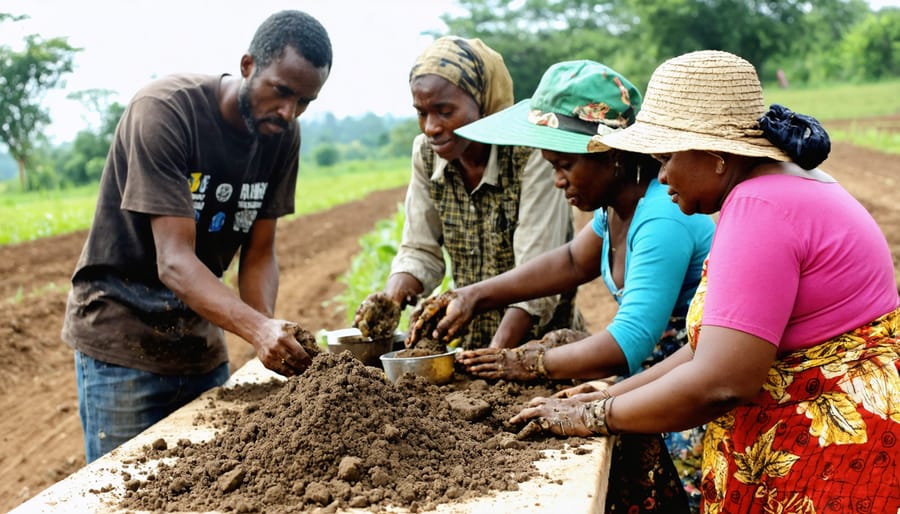
Real Solutions for Alberta’s Climate Challenges
Alberta farmers are leading the charge in developing practical climate solutions that work for their unique regional challenges. In Lethbridge County, a group of local farmers established the “Weather-Ready Fields” initiative, which has successfully implemented wind-break plantings across 2,000 hectares of farmland. This community-driven project not only reduces soil erosion but also creates natural snow traps for moisture retention.
In the Peace River region, farmers have collaborated with agricultural experts to develop innovative crop rotation systems that enhance soil carbon sequestration while maintaining profitable yields. The “Carbon Smart Farming” network, started by three family farms, has now grown to include over 50 local producers sharing best practices and data.
The Red Deer watershed community has pioneered a water management system that helps farmers prepare for both drought and flood conditions. Their approach combines traditional Indigenous knowledge with modern technology, creating resilient water storage solutions that benefit the entire agricultural community.
These initiatives demonstrate how Alberta farmers are taking control of their climate future through collective action and knowledge sharing, proving that local solutions often work best for local challenges.
Success Stories from Alberta’s Fields
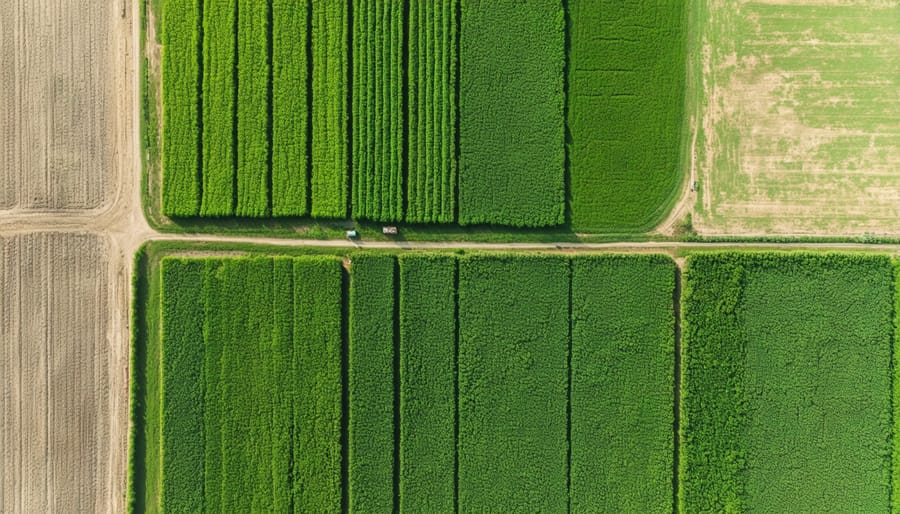
The Red Deer Valley Carbon Project
The Red Deer Valley Carbon Project stands as a shining example of what farmers can achieve when they work together. Started in 2019 by a group of 12 forward-thinking farmers in central Alberta, this initiative has grown to include over 50 agricultural operations spanning 40,000 hectares of farmland.
Led by third-generation farmer Sarah Thompson, the project focuses on implementing climate-smart agricultural practices while building a supportive community network. Participants meet monthly to share experiences, discuss challenges, and celebrate successes in their transition to regenerative farming methods.
The project has achieved remarkable results, with participating farms reducing their carbon emissions by an average of 30% over three years. Key strategies include rotational grazing, cover cropping, and reduced tillage practices. Perhaps most importantly, the initiative has created a knowledge-sharing framework that allows both experienced and new farmers to learn from each other.
What sets this project apart is its emphasis on peer-to-peer learning and community support. “We’re not just changing farming practices,” explains Thompson. “We’re building a resilient community that supports each other through the challenges of agricultural transformation.” The project has also developed partnerships with local agricultural extension services and research institutions, creating a robust support system for participating farmers.
The Lethbridge Soil Health Coalition
In the heart of southern Alberta, the Lethbridge Soil Health Coalition stands as a shining example of community-driven agricultural innovation. Formed in 2018 by a group of forward-thinking farmers, the coalition has grown to include over 150 members who collaborate to improve soil health practices across the region.
The coalition’s success lies in its peer-to-peer learning approach, where experienced farmers mentor others in implementing regenerative agriculture techniques. Monthly field days allow members to showcase their successes and challenges, creating an environment of open dialogue and practical knowledge exchange.
One of the coalition’s notable achievements is the establishment of a soil testing network, where members pool resources to conduct comprehensive soil analyses across different farm operations. This collaborative effort has helped reduce individual testing costs while building a valuable database of regional soil health indicators.
The group also maintains strong partnerships with local agricultural research stations and the University of Lethbridge, ensuring that traditional farming wisdom is enhanced by current scientific research. Their annual Soil Health Summit brings together farmers, researchers, and industry experts to share insights and plan future initiatives.
Through their collective efforts, coalition members have reported significant improvements in soil organic matter content, water retention, and crop resilience, demonstrating the power of community-led initiatives in advancing sustainable agriculture.
Building Your Own Community Climate Workshop
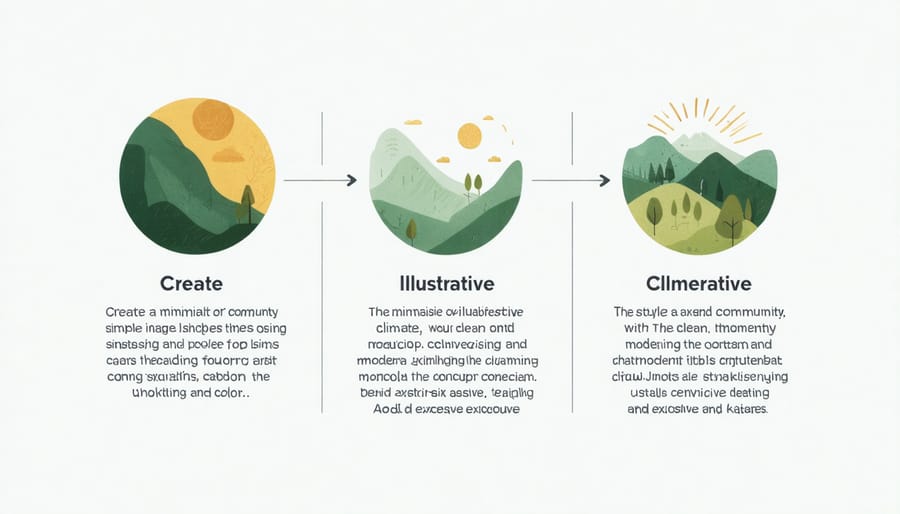
Getting Started: First Steps
Starting a community-led initiative begins with gathering a core group of passionate individuals who share your vision for positive change. In Alberta’s agricultural communities, this often means connecting with fellow farmers, local agricultural societies, and community leaders who understand the unique challenges of our region.
Begin by organizing an informal meeting at a convenient location, such as your local community hall or agricultural society building. During this initial gathering, focus on identifying shared concerns and goals specific to your area’s agricultural needs. For example, many Alberta farming communities have successfully started by addressing issues like soil health improvement or water conservation strategies.
Create a simple action plan that outlines your initiative’s primary objectives. Keep it realistic and achievable – start with smaller, manageable projects that can build momentum. Consider forming a steering committee of 4-6 people who can divide key responsibilities like community outreach, resource management, and event planning.
Documentation is crucial from the start. Maintain clear records of meetings, decisions, and contact information for participants. Many successful initiatives in Alberta have found that using shared online documents helps keep everyone aligned and engaged.
Remember to reach out to established organizations in your area for guidance and support. The Alberta Agricultural Societies and local extension offices often provide valuable resources and connections for community projects. They can help you avoid common pitfalls and build on proven success strategies from similar initiatives across the province.
Making It Last: Keys to Long-Term Success
Success in community-led initiatives isn’t just about getting started – it’s about building momentum that lasts for years to come. In Alberta’s farming communities, we’ve seen that the most enduring programs share several key characteristics that keep participants engaged and motivated.
Regular check-ins and celebrations are crucial. Consider hosting quarterly gatherings where participants can share their wins, no matter how small. The Leduc County Climate Action Group, for instance, maintains enthusiasm by organizing seasonal potlucks where farmers showcase their sustainable practices and share harvest results.
Documentation plays a vital role in long-term success. Keep detailed records of your initiatives, including photos, yield data, and participant feedback. This information becomes invaluable for securing future funding and demonstrating impact to new members.
Creating mentorship opportunities strengthens community bonds and ensures knowledge transfer. Pair experienced farmers with newcomers to share practical insights about sustainable practices. The Lacombe Agricultural Learning Circle has successfully used this approach for five years, maintaining an impressive 85% participant retention rate.
Don’t forget to adapt and evolve. Survey your community regularly about their needs and challenges. Be prepared to adjust your programs accordingly, whether that means changing meeting times to accommodate seasonal farm work or introducing new topics based on emerging agricultural trends.
Finally, establish clear succession plans. Identify and nurture future leaders within your group to ensure continuity when current organizers step back.
Resources and Support
Provincial Support Programs
Alberta’s provincial government offers several support programs designed to help communities launch and maintain climate initiatives. The Canadian Agricultural Partnership (CAP) provides funding of up to $50,000 for qualified projects focusing on sustainable agriculture and climate resilience. Local agricultural societies can access matching grants through the Agricultural Initiatives Program, which supports community education and demonstration projects.
The Environmental Stewardship and Climate Change Producer Program offers cost-sharing opportunities, covering up to 70% of eligible expenses for projects that reduce greenhouse gas emissions or improve soil health. Communities can also benefit from the Agricultural Service Board Grant Program, which provides resources for local agricultural programming and environmental protection initiatives.
Technical support is available through Alberta Agriculture and Forestry’s network of specialists, who can assist with project planning and implementation. The Alberta Environmental Farm Plan Company offers free workshops and one-on-one support to help producers develop sustainable management practices. Additionally, regional Climate Change Action Centres provide guidance on accessing grants and connecting with local experts who can support community-led projects.
Connecting with Expert Networks
Alberta’s farming community benefits from several well-established agricultural expert networks that provide valuable support for climate-smart initiatives. The Alberta Climate Information Service (ACIS) offers real-time weather data and forecasting tools specifically designed for agricultural applications. Organizations like Results Driven Agriculture Research (RDAR) connect farmers with leading researchers and innovative practices.
Local Agricultural Service Boards (ASBs) serve as crucial hubs for knowledge sharing and technical support. These boards operate in most counties throughout Alberta, offering direct access to agricultural fieldmen and environmental specialists who understand local conditions and challenges.
The Agricultural Research and Extension Council of Alberta (ARECA) provides a network of applied research associations that conduct field trials and demonstrations relevant to local growing conditions. Farmers can participate in field days, workshops, and peer-to-peer learning opportunities through these organizations.
Digital platforms like the Alberta Farm Sustainability Extension (AFSE) Working Group facilitate online collaboration and resource sharing among producers interested in sustainable agriculture practices.
As we’ve seen throughout Alberta’s agricultural communities, locally-driven climate initiatives are creating lasting positive changes in our farming practices and rural landscapes. These grassroots efforts have demonstrated that when farmers and community members come together, they can develop practical, effective solutions that work for their specific contexts and challenges.
The success of these initiatives lies in their bottom-up approach, where local knowledge and experience guide the implementation of sustainable practices. From collaborative water management projects in Southern Alberta to soil health workshops in the Peace Country region, these programs have shown remarkable results in building both environmental and community resilience.
Looking ahead, the future of community-led climate initiatives in Alberta appears promising. More farming communities are expressing interest in starting their own programs, and existing initiatives are expanding their reach and impact. The growing network of mentor farmers and agricultural professionals supporting these efforts ensures that valuable knowledge and experience continue to be shared across the province.
For communities considering starting their own climate initiatives, the groundwork has been laid. Resources, support networks, and successful models are readily available. As we face increasing climate challenges, these community-led efforts will become even more crucial in maintaining the vitality of Alberta’s agricultural sector and rural communities.
The message is clear: local action leads to provincial impact, and together, Alberta’s farming communities are building a more sustainable and resilient agricultural future.

